Planning worship?
Check out our sister site, ZeteoSearch.org,
for 20+ additional resources related to your search.
- |
User Links
Person Results
‹ Return to hymnal
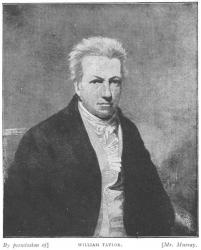

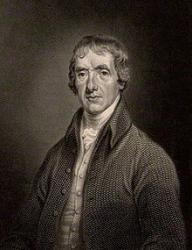

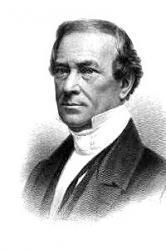
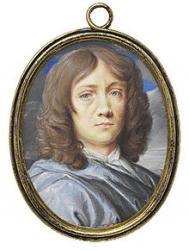
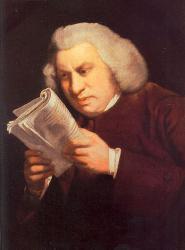
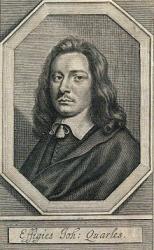
Export as CSV
W. Taylor

1765 - 1836 Hymnal Number: 267 Author of "The Lord is just; he made the chain" in A Collection of Hymns, for the Christian Church and Home Taylor, William, the son of a manufacturer, was born at Norwich, Nov. 7, 1765, and educated at Mr. Barbauld's school at Palgrave (see p. 113, ii.). After travelling abroad, he settled at Norwich in 1782. In 1791 he retired from business and devoted himself to literature. He was a frequent contributor to the Monthly, the Critical, and other Reviews, and was one of the first to introduce the study of German literature into England. His translations of Lessing's Nathan der Weise appeared in 1191, and of Goethe's Iphigenie in Tauris in 1793. In 1813 he published English Synonyms Discriminated, and in 1828-30 his Historical Survey of German Poetry, 3 vols. He died March 5, 1836. A Memoir of the Life and Writings of William Taylor, by J. W. Robberds, in 2 vols., was published in London in 1843. Taylor was a member of the congregation of the Octagon Chapel, Norwich, and contributed the following 5 hymns to Dr. Enfield's Norwich Selection of Hymns for Social Worship, 1795 (p. 331, ii.):—
1. Father of peace, O turn once more. For Mercy.
2. God of the universe, Whose hand. God the Universal Benefactor.
3. Moons, planets, suns that swim the sky. Nature perishable, God eternal.
4. The Lord is just; He made the chain. The Just Man.
5. Well sleeps the good who sinks to rest.
These hymns were repeated without author's name in the Norwich hymn-book of 1814, and again, sometimes with and at other times without name, in later Unitarian collections. [Rev. Valentine D. Davis, B.A.]
--John Julian, Dictionary of Hymnology, Appendix, Part II (1907)
W. Taylor
William Lamport
1772 - 1848 Person Name: Lamport Hymnal Number: 10 Author of "If, in a temple made with hands" in A Collection of Hymns, for the Christian Church and Home Lamport, William, 1772-1848. Minister at Poole and Lancaster; author of Sacred Poetry; consisting of Hymns and other Devotional Compositions, 1825. Of the hymns contained in this volume Martineau’s Hymns for the Christian Church and Home and Martineau’s Hymns of Praise and Prayer give:—
1. As his flock the shepherd leads. Psalm xxiii.
2. If in a temple made with hands. I will go to the altar of God.
3. Father, Universal Lord. The Lord's Prayer. First published in the Liverpool Sacred Offering. In Martineau’s Hymns for the Christian Church and Home.
--John Julian, Dictionary of Hymnology (1907)
William Lamport
Mrs. Carter
Hymnal Number: 233 Author of "O Thou, the wretched's sure retreat" in A Collection of Hymns, for the Christian Church and Home
Mrs. Carter
T. F. Middleton
1769 - 1822 Person Name: Middleton Hymnal Number: 227 Author of "As o'er the past my memory strays" in A Collection of Hymns, for the Christian Church and Home Middleton, Thomas Fanshaw, D.D., son of Thomas Middleton, Rector of Redleston, in Derbyshire, was born there on Jan. 26, 1769. He was educated first by his father, then at Christ's Hospital, and finally at Pembroke Hall, Cambridge (B.A. in honours 1792). He was successively Curate of Gainsborough; Rector of Tansor, Northamptonshire, 1795; Vicar of St. Pancras, 1810; Archdeacon of Huntingdon, 1812; and the first bishop of Calcutta, 1814. He died in Calcutta, July 8, 1822. Bishop Middleton's publications were mainly confined to various Sermons and Charges, and a work on the Greek Article. In 1824 his Sermons and Charges were collected and published with a short Memoir, by Dr. H. R. Bonney. At p. xciv. the only hymn ascribed to him is given with the explanation that it was composed by the Bishop "and always sung on new year's day, by his desire." It is: "As o'er the past my mem'ry strays"(New Year), in 4 st. of 4 1. It was printed in the August number of Carus Wilson's Family Visitor, 1826; again in Hall's Mitre Hymnal, 1836, and later in several collections. Original text in Book of Praise, 1862, p. 238.
--John Julian, Dictionary of Hymnology (1907)
T. F. Middleton
Roger Flexman
1708 - 1795 Person Name: Flexman Hymnal Number: 59 Author of "Great God! to thee our grateful tongues" in A Collection of Hymns, for the Christian Church and Home Flexman, Roger, D.D., 1708-1795, b. at Great Torrington, Devon. Educated for the ministry at Tiverton by Rev. John Moore, ordained at Modbury, 1730, and from 1747 to 1783 was minister at Rotherhithe. In 1770 appointed one of the compilers of the Index of the Commons Journals. He contributed 4 hymns to Pope's Collection, 1760:—
1. Great God, to thee my grateful tongue. God the Benefactor.
2. In realms of everlasting light. Saint's Conflict and Reward.
3. Jesus, adorned with grace divine. Second Advent.
4. To God my grateful soul ascend. Ps. cxxi.
--John Julian, Dictionary of Hymnology (1907)
Roger Flexman
John Gooch Robberds
1789 - 1854 Person Name: Robberds Hymnal Number: 374 Author of "Now your pleasant labors close" in A Collection of Hymns, for the Christian Church and Home Robberds, John Gooch, 1789-1854. Minister for many years at Cross Street Chapel, Manchester. Author of a Sunday Evening hymn in Martineau’s Hymns for the Christian Church and Home and Martineau’s Hymns of Praise and Prayer, “Now your pleasant labours close."
--John Julian, Dictionary of Hymnology (1907)
John Gooch Robberds
Pendlebury Houghton
1758 - 1824 Person Name: Houghton Hymnal Number: 360 Author of "Blest hour when virtuous friends shall meet" in A Collection of Hymns, for the Christian Church and Home Houghton, Pendlebury, 1758-1824. Minister at the Octagon Chapel, Norwich, and from 1812-1823 at Paradise Street Chapel, Liverpool. His hymn on The reunion of friends after death, "Blest be the hour when friends shall meet," is in Martineau’s Hymns for the Christian Church and Home, Martineau’s Hymns of Praise and Prayer, and J. P. Hopp’s Collection, 1877; Sometimes as:— "Blest hour when virtuous friends shall meet."
--John Julian, Dictionary of Hymnology (1907)
Pendlebury Houghton
John Pierpont

1785 - 1866 Person Name: Pierpont Hymnal Number: 372 Author of "Another day its course hath run" in A Collection of Hymns, for the Christian Church and Home Pierpont, John, son of James Pierpont, of Litchfield, Connecticut, was born at Litchfield, April 6, 1785, and educated at Yale College, where he graduated in 1804. After fulfilling engagements as a Tutor in New Haven, and in Charlestown, South Carolina, he was admitted to the Bar in 1812. Shortly after he retired and went into business, only to leave it also, and to pass on to Harvard College as a student in theology. In 1819 he succeeded Dr. Holley as the pastor of the Unitarian congregation in Hollis Street, Boston. At length his zeal against intemperance and slavery caused him to resign his charge in 1840 [sic. 1845] (see Lothrop's Proceedings of an Eccl. Council in the case of the Hollis Street Meeting and the Rev. J. Pierpont). At this date he published his Poems & Hymns, including his anti-slavery and temperance poems and songs. In 1845 he became the pastor of an Unitarian congregation at Troy, New York. This he vacated for another at Medford, Massachusetts, in 1849. That he resigned in 1859. When over 70 years of age he became Chaplain in the United States Army (1862), and was finally a Government clerk in the Treasury Department at Washington. He died suddenly at Medford, Aug. 27, 1866.
Pierpont's publications include Airs of Palestine, 1816, some school books, and his Poems & Hymns, 1840 and 1854. His hymns in common use include:—
1. Another day its course hath run. Evening. Appeared in Hymns for Children, Boston, 1825; in Greenwood's Chapel Liturgy, 1827; and in the author's Poems & Hymns, 1840.
2. Break forth in song, ye trees. Public Thanksgiving. Written for the Second Centennial Celebration of the Settlement of Boston, Sept. 17, 1830, and included in the Poems & Hymns, 1840.
3. Break the bread and pour the wine. Holy Communion. In Harris's Hymns for the Lord's Supper, 1820.
4. Father, while we break the bread. Holy Communion.
5. God Almighty and All-seeing. Greatness of the Father. Contributed to Elias Nason's Congregational Hymn Book, Boston, 1857.
6. God of mercy, do Thou never. Ordination. Written for the Ordination of John B. P. Storer at Walpole, Nov. 15, 1826; and published in the author's Poems, &c, 1840.
7. God of our fathers, in Whose sight. Love of Truth desired. This hymn is composed of st. ix., x. of a hymn written for the Charlestown Centennial, June 17, 1830. In this form it was given in the Boston Hymns of the Spirit, 1864, and others.
8. Gone are those great and good. Burial. Written in 1830. Part of No. 2 above.
9. I cannot make him dead. Gone Before. "A part of an exquisitely touching and beautiful poem of ten stanzas, originally printed in the Monthly Miscellany, Oct. 1840."
10. Let the still air rejoice. Praise.
11. Mighty One, Whose name is Holy. Charitable Institutions. Written for the anniversary of the Howard Benevolent Society, Dec. 1826, and included in the author's Poems, &c, 1840.
12. My [0] God, I thank Thee that the night. Morning. Appeared in his Poems, &c, 1840. In Martineau's Hymns, &c, 1873, it begins "O God, I thank Thee," &c.
13. 0 bow Thine ear, eternal One. Opening of Divine Service. This is dated 1823, but was not included in the author's Poems, &c, 1840, although one of his best productions.
14. 0 Thou to Whom in ancient time. Universal Worship. “Written for the opening of the Independent Congregational Church in Barton Square, Salem, Massachusetts, Dec. 7, 1824," and printed at the close of the sermon preached by Henry Colman on that day. It was given in Pierpont's Poems, &c, 1840, and is found in several collections in Great Britain and America. It is widely known.
15. 0 Thou Who art above all height. Ordination. “Written for the Ordination of Mr. William Ware, as Pastor of the First Congregational Church in New York, Dec. 18, 1821," and included in his Poems, &c, 1840.
16. 0 Thou Who on the whirlwind rides. Dedication of a Place of Worship. Written for the opening of the Seamen's Bethel in Boston, Sept. 11, 1833. Sometimes given as “Thou Who on the," &c.
17. O'er Kedron's stream, and Salem's height. Gethsemane. One of eight hymns contributed to Dr. T. M. Harris's Hymns for the Lord's Supper, 1820. It is in Martineau's Hymns, &c, London, 1873, and others.
18. On this stone, now laid with prayer. Foundation-stone Laying. Written for the laying of the cornerstone of Suffolk Street Chapel, Boston, for the Ministry of the Poor, May 23, 1839.
19. With Thy pure dews and rain. Against Slavery. Written for the African Colonization Society, and included in Cheever's American Common Place Book, 1831. Not in the author's Poems, &c, 1840.
Pierpont's talents as a hymn-writer, as in other fields, were respectable rather than commanding, but so energetically employed as to make their mark. Thus, although he never wrote a single hymn that can be called a great lyric, yet he has attained to a prominent position in American hymnody. [Rev. F. M. Bird, M.A.]
-- John Julian, Dictionary of Hymnology (1907)
John Pierpont
John Aikin

1747 - 1822 Person Name: Aikin Hymnal Number: 398 Author of "While sounds of war are heard around" in A Collection of Hymns, for the Christian Church and Home Aikin, John, M.D., 1747-1822. The brother of Mrs. Barbauld,son or Dr. Aikin of the Warrington Academy. As a physician he practised at Warrington and Yarmouth, and from 1798 till the time of his death lived at Stoke Newington. Author (with his sister), of Evenings at Home, editor of the General Biographical Dictionary, and for some time of the Monthly Magazine. His hymn In time of war, "While [what] sounds of war are heard around," was very popular. It is in Kippis and Martineau’s Hymns for the Christian Church and Home.
--John Julian, Dictionary of Hymnology (1907)
John Aikin
William Bourn Oliver Peabody

1799 - 1847 Person Name: Peabody Hymnal Number: 332 Author of "Behold the beauteous western light!" in A Collection of Hymns, for the Christian Church and Home Peabody, William Bourne Oliver, D.D., twin brother of Oliver William Bourne, was born at Exeter, New Hampshire, July 9, 1799, and educated in his native town and at Harvard College. Leaving Harvard in 1817, he taught for a year at an academy in Exeter, and then proceeded to study theology at the Cambridge Divinity School. He began to preach in 1819, and became the Pastor of the Unitarian Congregation at Springfield, Massachusetts, in October, 1820. This charge he held to his death on May 28, 1847. His Memoir (written by his brother) was published with the 2nd ed. of his Sermons, 1849; and his Literary Remains followed in 1850. "He was a man of rare accomplishments, and consummate virtue," whose loveliness of character impressed many outside his own sect. In 1823 he published a Poetical Catechism for the Young to which were appended some original hymns. He also edited The Springfield Collection of Hymns for Sacred Worship, Springfield, 1835. A few of his hymns also appeared in that collection. His hymns in common use are:—
1. Behold the western evening light. Death of the Righteous, or Autumn Evening. Published in his Catechism, 1823, in 6 st. of 4 1., and again in his Springfield Collection, 1835, No. 484. It is in common use in its original form; also as altered in the Leeds Hymn Book, 1853; and again as altered by George Rawson in the Baptist Psalsm & Hymns, 1858, where it reads "How softly on the western hills."
2. God of the earth's extended plains. Hymn of Nature. This is in Griswold's Poets and Poetry of America, in 6 st. of 8 1. This is thought by some to be the production of his brother Oliver; but Putnam assigns it to William. It is given abbrevi¬ated in a few collections. The hymn "God of the rolling orbs above," in the Boston Unitarian Hymns [and Tune"] Book, 1868, and others, begins with st. v.
3. 0 when the hours of life are past. The Hereafter. This hymn, in 6 st. of 4 1., was given in his Catechism, 1823, as the Answer to "Question xiv. What do you learn of the Future State of Happiness." It is in use in its original form, and also altered as "When all the hours of life are past."
4. The moon is up: how calm and slow. Evening. A poem rather than a hymn, in 6 st. of 4 1., appended to his Catechism, 1823.
5. When brighter suns and milder skies. Spring. Appended to his Catechism, 1823, in 6 st. of 4 1.
The full texts of all these hymns are in Putnam's Singers and Songs of the Liberal Faith, Boston, U. S. A., 1875. [Rev. F. M. Bird, M.A.]
-- John Julian, Dictionary of Hymnology (1907)
William Bourn Oliver Peabody
Andrews Norton
1786 - 1853 Person Name: Norton Hymnal Number: 93 Author of "My God! I thank thee; may no thought" in A Collection of Hymns, for the Christian Church and Home Norton, Andrews, D.D., son of Samuel Norton, was born at Higham, Massachusetts, Dec. 31, 1786, and was educated at Higham, and at Harvard College. After being engaged there for a short time as a tutor, he was appointed Librarian, and subsequently Lecturer on Biblical Criticism, as successor to Dr. Channing. When the Theological School was opened in 1819 he became Dexter Professor of Literature. This position he held until 1830. He died at Newport, Rhode Island, Sept. 18, 1853. He was for some time editor of the General Repository and Review, and published several prose works, one of the most extensive being The Genuineness of the Gospels, in 4 volumes. His hymns are few in number, and are mainly meditations in verse. They were contributed to various periodicals, and after his death were collected and published in a small volume. Of these hymns the following are in common use:--
1. Another year, another year, The unceasing rush, &c. Close of the Year. Appeared in the Christian Examiner in Nov. and Dec. 1827, in 11 stanzas of 4 lines. It is used in an abbreviated form. In the American Boston Unitarian Hymns [&Tune] Book, 1868, it begins with st. vi., "O what concerns it him whose way."
2. Faint not, poor traveller, though thy way. Fortitude. Printed in the Christian Disciple, July and Aug., 1822, in 7 st. of 4 1., and again in the West Boston Collection, 1823.
3. He has gone to his God, he has gone to his home. Burial. Printed in the Christian Examiner, Jan. and Feb., 1824.
4. My God, I thank Thee! may no thought. Trust and Submission. Appeared in the Monthly Anthology and Boston Review, Sept., 1809. This is his earliest and best known hymn.
5. 0 stay thy tears:for they are blest. Burial of the Young. Printed in the General Repository and Review, April, 1812, in 5 st. of 4 1. In 1855, st. iii.-v. were given in Beecher's Plymouth Collection, No. 1094, as "How blest are they whose transient years."
6. Where ancient forests round us spread. Dedication of a Church. This "Hymn for the Dedication of a Church," is dated 1833.
These hymns are in some of the American hymnals. Nos. 1, 4, 5 are in Martineau's Hymns, 1873, and the full texts of all are in Putnam's Singers and Songs of the Liberal Faith, Boston, U.S.A., 1875. [Rev. F. M. Bird, M.A.]
--John Julian, Dictionary of Hymnology (1907)
Andrews Norton
N. L. Frothingham

1793 - 1870 Person Name: Frothingham Hymnal Number: 402 Author of "O God, whose presence glows in all" in A Collection of Hymns, for the Christian Church and Home Frothingham, Nathaniel Langdon, D.D., born at Boston July 23rd, 1793, and graduated at Harvard 1811, where he was also sometime Tutor. From 1815 to 1850 he was Pastor of the First Church (Unitarian), Boston, and subsequently attended as a worshipper the church where he had been 35 years minister till his sight and strength failed him. He died April 4th, 1870.
His Metrical Pieces, in 2 volumes, were published in 1855 and 1870.
1. O God, Whose presence glows in all. Ordination. This was written in 1828 for the ordination of W. B. Lunt, New York.
2. We meditate the day . Installation. Written in 1835 for Mr. Lunt's installation at Quincy, Mass., as Co-pastor with Peter Whitney.
3. O Lord of life and truth and grace . Ordination. Also a special hymn. It was composed for the ordination of H. W. Bellowes, New York, 1839. It is found in common with Nos. 1 and 2 in Frothingham's Metrical Pieces, 1855. These Metrical Pieces are unknown to the English Collections. [Rev. F. M. Bird, M.A.]
--John Julian, Dictionary of Hymnology (1907)
================
Frothingham, N. L. , p. 400, ii. Other hymns are:—
1. O Saviour, Whose immortal word. Opening of a Place of Worship. Written "For the Dedication of the Church of the Saviour, Boston, November 16, 1847."
2. Remember Me, the Saviour said. Holy Communion.
3. They passed away from sight. Death and Burial.
4. When I am weak, I'm strong. Spiritual Strength. Nos. l, 2, and 4 are from his Metrical Pieces, Translated and Original, 1855,
--John Julian, Dictionary of Hymnology, Appendix, Part II (1907)
N. L. Frothingham
John Taylor
1750 - 1826 Person Name: J. Taylor Hymnal Number: 73 Author of "Father divine! before thy view" in A Collection of Hymns, for the Christian Church and Home Taylor, John, born July 30, 1750, was the son of Richard Taylor, of Norwich, and grandson of Dr. John Taylor (1694-1761, the eminent Hebrew scholar, who was for many years minister of the Octagon Chapel, Norwich, and afterwards Divinity tutor at the Warrington Academy. Dr. Taylor published A Collection of Tunes in Various Airs, one of the first collections of its kind, and his grandson was one of the most musical of Unitarian hymn-writers). Young Taylor, after serving his apprenticeship in his native place, was for two years in a banking house in London, at which time he was an occasional poetical contributor to the Morning Chronicle. In 1773 he returned to Norwich, where he spent the rest of his life, first as a manufacturer, and afterwards as a wool and yarn factor. For nearly fifty years he was a deacon at the Octagon Chapel. At the time of the French Revolution he joined in the support of The Cabinet, a periodical brought out by the Liberals of Norwich, in conjunction with Dr. Enfield, William Taylor, Miss Alderson (Mrs. Opie), and others, and, as a "poet of the olden time," he contributed five poems thereto. These, and other political songs and poems relating to family events, &c, together with 50 hymns, were collected in Hymns and Miscellaneous Poems, Reprinted for Private Distribution, 1863, with a Memoir taken from the Monthly Repository of Sept. 1826, by his son, Edward Taylor, then Gresham Professor of Music. An earlier and less complete edition, containing 43 hymns, he had himself caused to be printed by his sons, Richard and Arthur Taylor, London, 1818. He died June 23, 1826. Of his hymns the following 9 were contributed to Dr. Enfield's Selection of Hymns for Social Worship, Norwich, 1795:—
1. Far from mortal cares retreating. Divine Worship.
2. Father divine, before Thy view. Divine Providence.
3. Father of our feeble race. Christian Love. This begins in Horder's Congregational Hymns, 1884, and others, with st. ii., "Lord, what offering shall we bring?"
4. Glory be to God on high. Divine glories celebrated. The first stanza is by C. Wesley, and the rest are by Taylor.
5. God of mercy, God of love [grace], Hear our sad repentant song. Penitence.
6. 0 sing to the Lord a new song. Praise to the Supreme Ruler and Judge.
7. Praise to God, the great Creator. Praise to the Father. The hymn "Saints with pious zeal attending" in Hatfield's Church Hymns, &c.,N.Y., 1872, begins with line 4 of stanza i. of this hymn.
8. Raise your voice and joyful sing. Praise.
9. Rejoice, the Lord is King. Providence acknowledged in the Seasons. The first stanza and 11. 5 and 6 of all are by C. Wesley, and the rest are by Taylor.
J. Taylor edited Hymns intended to be used at the Commencement of Social Worship, London, 1802. To that collection he contributed 10 hymns, including:—
10. At the portals of Thy house. Divine Worship. In a few American collections a cento from this hymn is given as, "Lord, before thy presence come."
11. Blessed Sabbath of our [the] Lord. Sunday.
12. 0 how delightful is the road. Divine Worship.
13. Supreme o'er all Jehovah reigns.. Divine Worship. All the foregoing, except No. 8, were re-published in the Norwich Collectionof 1814. That edition contained 33 of Taylor's hymns. To the 2nd ed., 1826, he added 9 more. To R. Aspland's Selection of Psalms and Hymns for Unitarian Worship, Hackney, 1810, he contributed 26 hymns, old and new, including :—
14. Like shadows gliding o'er the plain. Time and Eternity.
15. The Mighty God who rolls [rules] the spheres. God the Preserver of Man.
These 15 are the best known of Taylor's hymns, and are largely found in Unitarian collections. See especially Dr. Martineau's Hymns, &c, of 1840, and of 1873. [Rev. Valentine D. Davis, B.A.]
-- John Julian, Dictionary of Hymnology (1907)
John Taylor
William Russell
1798 - 1873 Person Name: Russell Hymnal Number: 179 Author of "O'er the dark wave of Galilee" in A Collection of Hymns, for the Christian Church and Home Russell, William, was born in Glasgow in 1798, and educated at the University of Glasgow. Removing from Scotland to America, he was at Savannah in 1817, and subsequently at other places in the United States. He was an active promoter of education, teachers' associations, and kindred objects, and did much to further the cause of education in the States. He was originally a Baptist, but did not hold to close communion. He died at Lancaster, Massachusetts, Aug. 16, 1873. His hymn, "O'er the dark wave of Galilee" (Christ in Solitude), begins with st. iii. of a poem written by him at the request of Dr. Ware, editor of the Unitarian Christian Examiner, and printed therein in 1826. [Rev. F. M. Bird, M.A.]
--John Julian, Dictionary of Hymnology (1907)
William Russell
Joseph Hancox
1780 - 1824 Person Name: Hancox Hymnal Number: 5 Author of "How welcome thy returning beams" in A Collection of Hymns, for the Christian Church and Home Hancox, Joseph, 1780-1824. A Liverpool merchant, of fine poetical taste, four of whose hymns are in Martineau’s Hymns for the Christian Church and Home, Martineau’s Hymns of Praise and Prayer, also in the Norwich Collection, ed. 1826:—
1. Father in heaven, thy sacred name. The Lord's Prayer.
2. How welcome thy returning beams. The Lord's Day.
3. O for a faith in God's decrees. The shelter of faith.
4. Yon glorious orbs that gild the sky. New heavens and new earth.
--John Julian, Dictionary of Hymnology (1907)
Joseph Hancox
Thomas Flatman

1637 - 1688 Person Name: T. Flatman Hymnal Number: 367 Author of "Sleep, downy sleep! come close my eyes" in A Collection of Hymns, for the Christian Church and Home Flatman, Thomas, poet and miniature painter, was born in London, cir. 1633, and died cir. 1688. He was a barrister of the Inner Temple, but gave most of his time to poetry and painting. He was the author of some Pindaric Odes on the deaths of Prince Rupert, and of Charles II.; and of a prose satire on Richard Cromwell. His Poems & Songs were published in 1674 (3rd edition 1682), and from this volume the following hymns have been transferred to Dr. Martineau's Hymns, 1840, and his Hymns of Praise and Prayer, 1873:— "Awake, my soul, awake, mine eyes " (Morning); “Sweet slumbers, come and chase away" (Evening).
The similarity of these hymns to the Morning and Evening hymns of Bp. Ken suggests the possibility that they may have inspired the latter. Flatman's "Thoughts on Death " also contains the germ of Pope's "Vital Spark," &c, q.v.
--John Julian, Dictionary of Hymnology (1907)
Thomas Flatman
Samuel Johnson

1709 - 1784 Person Name: Dr. Johnson Hymnal Number: 106 Author of "O thou whose power o'er moving worlds presides" in A Collection of Hymns, for the Christian Church and Home
Samuel Johnson
John Quarles

1624 - 1665 Person Name: J. Quarles Hymnal Number: 240 Author of "Fountain of light and living breath" in A Collection of Hymns, for the Christian Church and Home Quarles, John, son of Francis Quarles, was born in Essex in 1624, and was educated at Exeter College, Oxford. He bore arms within the garrison at Oxford on behalf of Charles I. and subsequently (it is said) he was raised to the rank of captain in the King's service. On the downfall of the King, Quarles retired to London, and devoted himself to literature for a livelihood. He died there during the great Plague, 1665. He published several works including (1) Jeremiah's Lamentations Paraphrased, with Divine Meditations, 1648; and (2) Divine Meditations upon Several Subjects whereunto is annexed God's Love to Man’s Unworthiness, with several Divine Ejaculations. London, 1655 (Wood's Athenae Oxon.). From the Ejaculation, Mr. Darling adapted two hymns for his Hymns for the Church of England. In the 1889 ed. these are:— “O King of kings, before Whose Throne" (Holy Trinity); and "O Thou Who sitt'st in heaven and seest" (Visitation of Sick).
--John Julian, Dictionary of Hymnology (1907)
John Quarles
T. Humphries
Hymnal Number: 116 Author of "O Thou, from whom all goodness flows!" in A Collection of Hymns, for the Christian Church and Home
T. Humphries


 My Starred Hymns
My Starred Hymns


